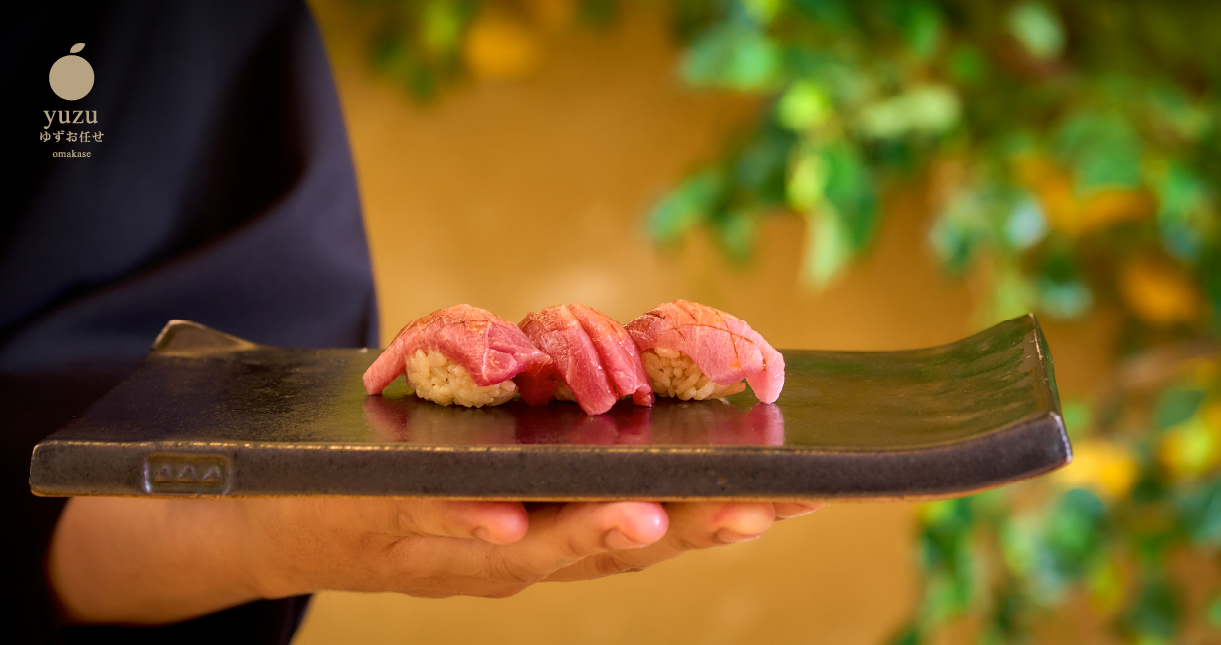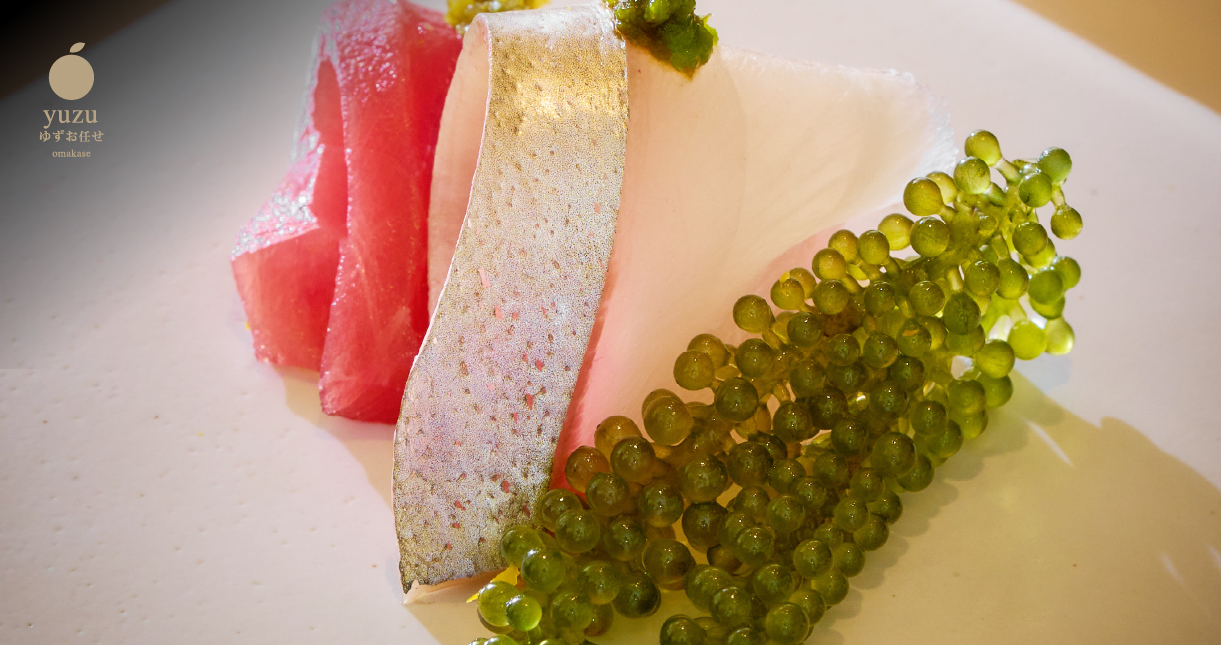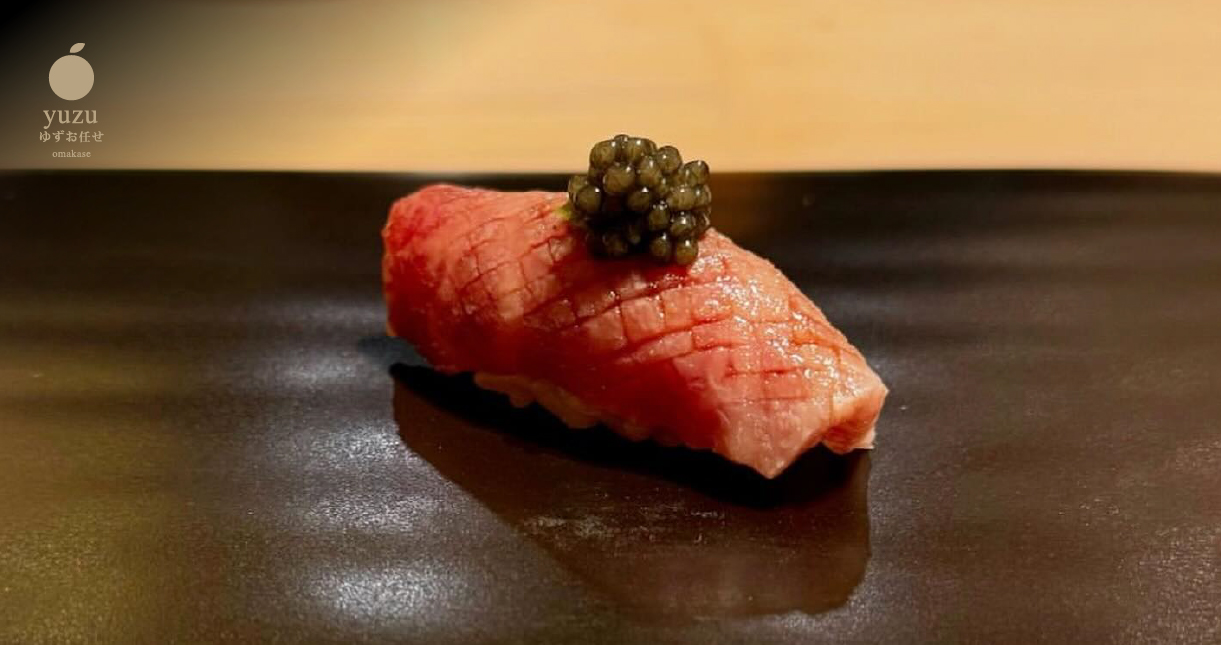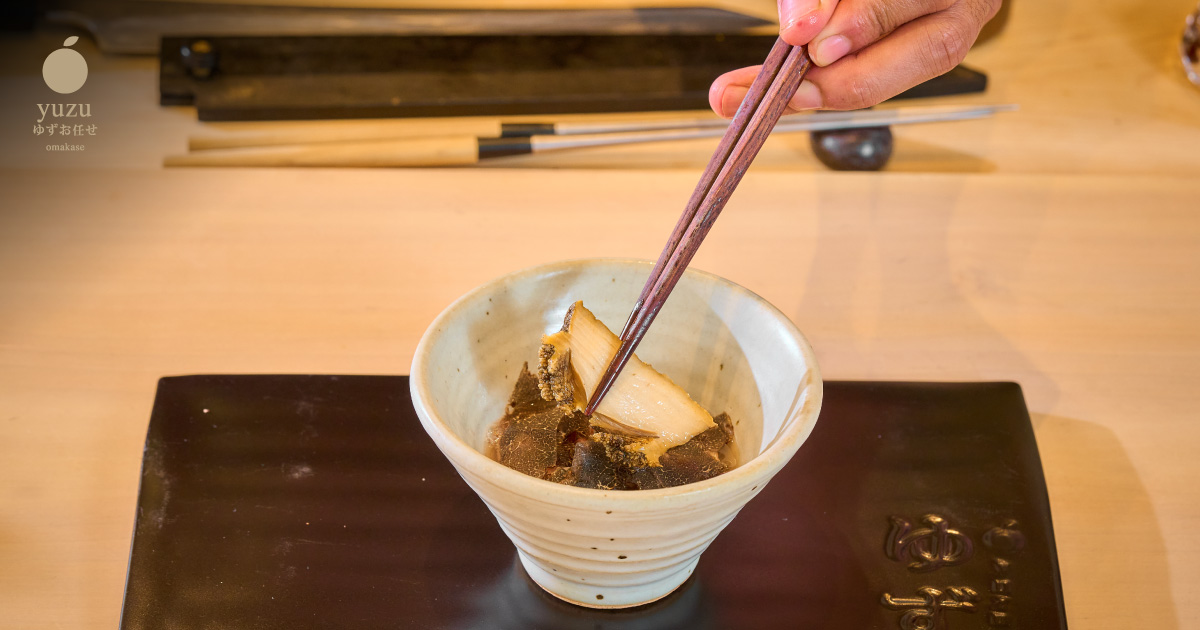
The Importance of Freshness in Sushi
Sushi is a culinary art form that revolves around simplicity, precision, and above all, freshness. At Yuzu Omakase in Bangkok’s Siam Square, the commitment to using the freshest ingredients is at the core of every dish. The importance of freshness in sushi cannot be overstated, as it directly impacts both the taste and the health benefits of this beloved cuisine. This article explores why freshness is essential in sushi and how it enhances both the flavor and nutritional value of each bite.
Well-Being ● 2024 Aug 30
The Importance of Freshness in Sushi
Freshness: The Foundation of Flavor
The Role of Fresh Ingredients in Taste
The purity of sushi lies in its minimalism—few ingredients, no heavy sauces, and a focus on letting the natural flavors shine through. When it comes to sushi, the fresher the ingredients, the more vibrant and authentic the taste. Fresh fish has a clean, delicate flavor that is easily distinguished from older or less fresh fish, which can have a dull or off taste.
Fish
- The cornerstone of sushi, fresh fish like Maguro (Tuna), Salmon (Sake), and Hamachi (Yellowtail) delivers a bright, oceanic taste that is both pure and satisfying. The natural oils in fresh fish enhance its flavor, making each bite a delightful experience.
Rice
- Freshly cooked sushi rice, or shari, is another key component. When prepared with fresh, high-quality rice, the texture is perfectly sticky without being mushy, and the balance of vinegar, sugar, and salt is just right. Fresh rice complements the fish and ties the sushi together.

Enhancing the Dining Experience
Freshness is not just about taste—it’s also about texture and overall experience. The crispness of vegetables, the firmness of fish, and the proper stickiness of rice all contribute to the pleasure of eating sushi. Fresh ingredients provide the right mouthfeel, from the slight resistance of the fish to the delicate pop of Ikura (Salmon Roe), creating a multisensory dining experience.
Vegetables and Garnishes:
- Fresh vegetables like Cucumber, Avocado, and Shiso Leaves add crunch and brightness to sushi, while fresh garnishes like Wasabi and Ginger provide the perfect balance of flavors.
Health Benefits of Fresh Sushi Ingredients
Nutritional Value of Fresh Fish
Fresh fish is not only more flavorful but also more nutritious. When fish is fresh, it retains higher levels of essential nutrients like omega-3 fatty acids, vitamins, and minerals, all of which offer numerous health benefits.
Omega-3 Fatty Acids
- Fish like Salmon, Tuna, and Mackerel are rich in omega-3 fatty acids, which are vital for heart health, reducing inflammation, and supporting brain function. These healthy fats are most potent when the fish is fresh, as they degrade over time.
Vitamins and Minerals
- Fresh fish is a great source of vitamins D and B12, which are important for bone health and energy production. Minerals like selenium, found in fish, are powerful antioxidants that protect the body from oxidative stress.

The Benefits of Fresh Seaweed and Vegetables
Seaweed, such as Nori, and fresh vegetables used in sushi are packed with essential nutrients that support overall health. When these ingredients are fresh, they offer maximum nutritional benefits.
Seaweed
- Fresh nori is rich in iodine, which is essential for thyroid function and metabolism. It also provides fiber, which supports digestive health, and antioxidants that protect against cellular damage.
Vegetables
- Fresh vegetables add fiber, vitamins, and minerals to sushi. For example, Avocado is high in healthy fats and potassium, while Cucumber provides hydration and vitamin K. Fresh produce ensures that these nutrients are retained and delivered in their most beneficial form.
Digestive Health and Fresh Ingredients
Fresh ingredients are easier for the body to digest, which is particularly important in a meal like sushi, where raw fish is often the star. Fresh fish is less likely to harbor harmful bacteria that can cause foodborne illnesses. Additionally, the enzymes in fresh ingredients are more active, aiding digestion and improving nutrient absorption.
Enzyme Activity
- Fresh fish and vegetables contain natural enzymes that help break down food in the digestive system. These enzymes are most effective when the ingredients are fresh, promoting better digestion and nutrient uptake.
The Yuzu Omakase Commitment to Freshness
Daily Sourcing and Preparation
At Yuzu Omakase, the commitment to freshness begins with the daily selection of ingredients. Chefs work closely with trusted suppliers to source the freshest fish, seafood, and produce available. This dedication to quality ensures that every dish served is at its peak in flavor and nutritional value.
Sourcing from Trusted Suppliers
- The chefs at Yuzu Omakase carefully choose their suppliers based on their ability to provide the freshest ingredients. This includes sourcing fish directly from markets where they can guarantee its quality and freshness.
Daily Preparation
- Freshness is maintained through meticulous daily preparation. Fish is cleaned and cut just before service, rice is cooked in small batches to ensure it remains fresh, and garnishes are prepared to order.
Sustainability and Freshness
Yuzu Omakase also prioritizes sustainability, recognizing that fresh, high-quality ingredients come from responsibly managed sources. By supporting sustainable fishing and farming practices, Yuzu Omakase ensures that its ingredients are not only fresh but also ethically sourced, contributing to the long-term health of the environment.
Sustainable Sourcing
- Choosing sustainable seafood ensures that fish populations remain healthy and that marine ecosystems are protected. This commitment to sustainability also means that the freshest ingredients will be available for future generations to enjoy.

Enjoying Fresh Sushi at Its Best
Timing and Consumption
To truly appreciate the benefits of fresh sushi, it’s important to consume it as soon as it’s prepared. Sushi is best enjoyed immediately after it’s made, when the fish is still at its optimal freshness and the rice is perfectly warm. At Yuzu Omakase, dishes are served promptly after preparation to ensure that guests experience the full spectrum of flavors and textures.
Immediate Consumption
- Fresh sushi should be eaten immediately to enjoy the delicate balance of flavors and textures that are lost over time.
Proper Storage
- If sushi cannot be eaten right away, it should be stored properly to maintain freshness. However, for the best experience, sushi is always enjoyed fresh from the chef's hands.

Savoring the Experience
Fresh sushi is a sensory experience that should be savored. Take the time to appreciate the colors, the aroma, and the feel of the sushi before taking a bite. Savor each piece, allowing the flavors to unfold on your palate. This mindful approach to eating not only enhances the pleasure of the meal but also allows you to fully benefit from the nutritional richness of the fresh ingredients.
Mindful Eating
- Engaging all your senses in the dining experience helps you appreciate the freshness and craftsmanship of each piece of sushi. This mindful eating practice also contributes to better digestion and overall satisfaction.
Conclusion
The importance of freshness in sushi cannot be overstated—fresh ingredients are essential for both the taste and health benefits of this beloved cuisine. At Yuzu Omakase, the commitment to using the freshest fish, seafood, and produce ensures that every dish is a celebration of flavor and nutrition. Whether you’re enjoying a delicate piece of tuna or savoring the crispness of fresh vegetables, you can be confident that each bite is not only delicious but also nourishing. Plan your visit to Yuzu Omakase and experience the unparalleled quality that comes from a dedication to freshness.

RELATE
-
Why Japanese Restaurant in Thailand Bangkok Siam Square Is Ideal for Health-Conscious Diners
In a world where mindful living meets culinary artistry, Yuzu Omakase in Siam Square offers a rare dining experience: sophisticated, satisfying, and deeply aligned with wellness values.
Well-Being ● 2025 May 18
-
Sushi Thailand Bangkok with Purpose: Nutrition Meets Art at Yuzu Omakase
In the refined quiet of Yuzu Omakase, health and indulgence are no longer opposites. Here, clean proteins, omega-3-rich seafood, and seasonal vegetables come together in a tasting experience designed to nourish body and soul.
Well-Being ● 2025 May 16








